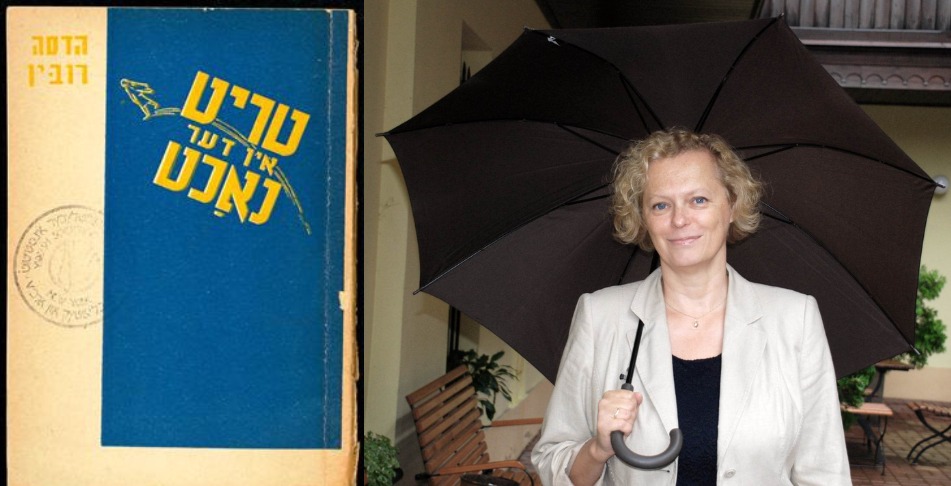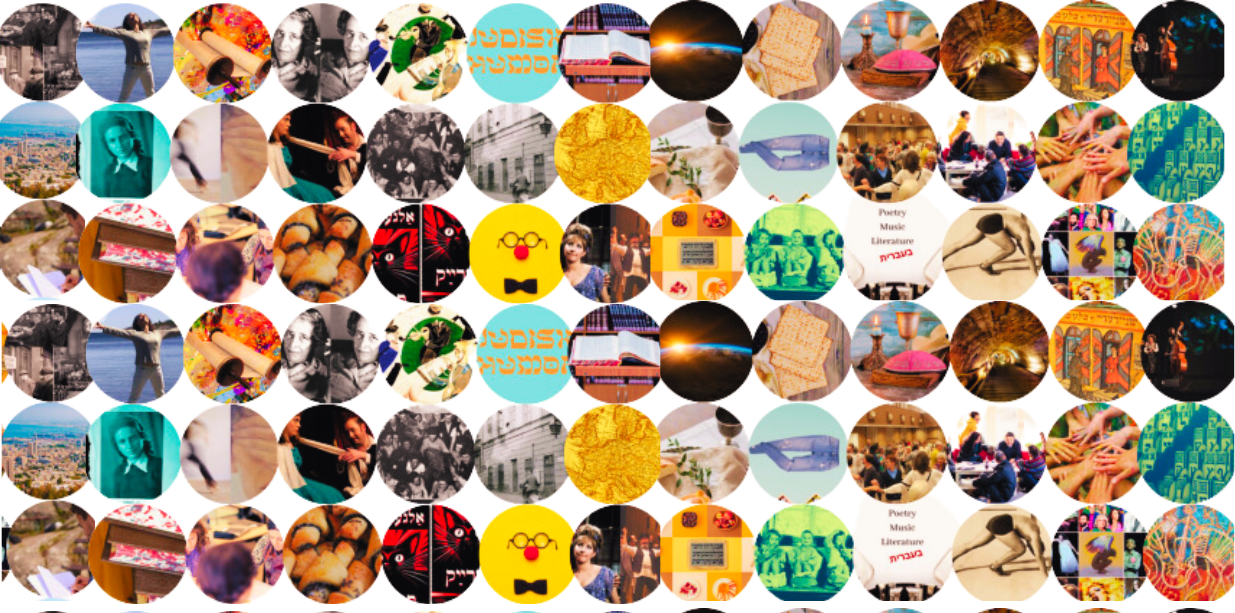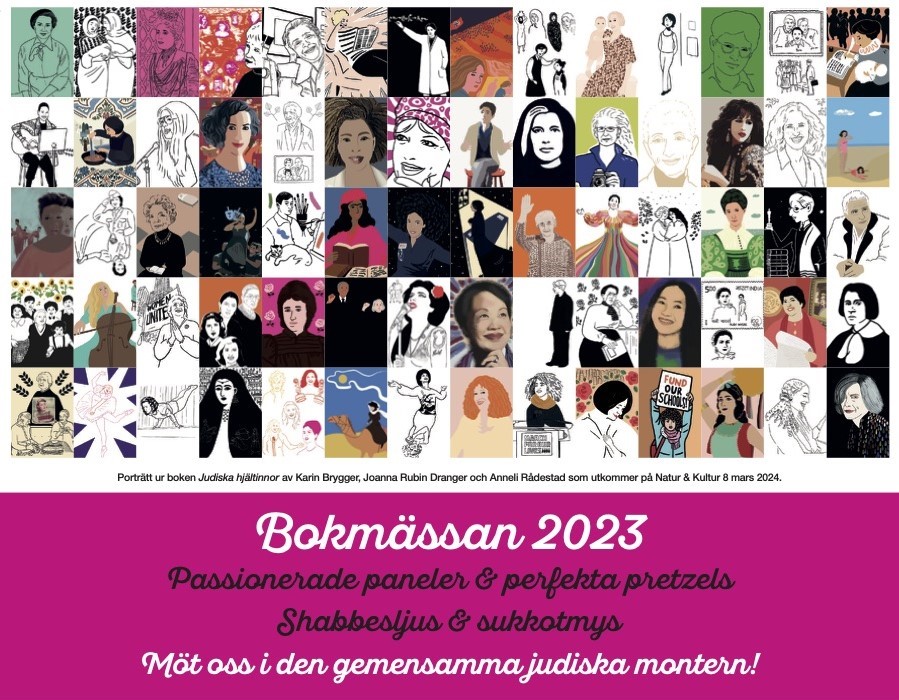12th September 2023 at 20:00 CET

Hadasa Rubin – the only poetess among writers of Yiddish literature in postwar PolandWho is Hadasa Rubin? (1912–2003), Yiddish poet, editor, and cultural activist. Hadasah Rubin was born into a poor family in Iampol’, Ukraine. In 1921, her family moved to Zbarazh in Galicia and later to Kremenets, where she finished high school. In her youth Rubin was an ardent member of the Communist Party, and consequently spent a few years in a Polish prison. She emerged with her revolutionary zeal intact and a bundle of poems under her arm. Traces of this youthful restlessness, which pervaded her early political sensibilities, stayed present in her work throughout her literary career. Even though she later renounced communism, she maintained her original ideals, namely freedom, equality, and friendship among nations.
(from the Yivo Encyclopedia of The Jews of Eastern Europe
https://yivoencyclopedia.org/article.aspx/Rubin_Hadasah )
About the speaker:
Magdalena Ruta is an Associate Professor at the Institute of Jewish Studies at the Jagiellonian University in Kraków. She is the author of the books: Pomiędzy dwoma światami. O Kalmanie Segalu (2003) and Bez Żydów? Literatura jidysz w PRL o Zagładzie, Polsce i komunizmie (2012), English version: Without Jews? Yiddish literature in the People’s Republic of Poland on the Holocaust, Poland and Communism (2017), of many papers on Yiddish literature, as well as numerous translations. She is the editor and translator of the anthology of poetry entitled Nie nad rzekami Babilonu. Antologia poezji jidysz w powojennej Polsce / Nisht oyf di taykhn fun Bovl. Antologye fun der yidisher poezye in nokhmilkhomedikn Poyln [Not by the rivers of Babylon. Anthology of Yiddish poetry in post-war Poland] (Kraków 2012; Yiddish-Polish edition with English introduction), and the editor of the anthology of Yiddish literature Nowe życie? Antologia literatury jidysz w powojennej Łodzi (1945–1949) [New life? Anthology of Yiddish literature in postwar Lodz] (2017). She also edited the following publications: Nusech Pojln. Studia z dziejów kultury jidysz w powojennej Polsce (Kraków-Budapest 2008) and (along with Elvira Groezinger) Under the Red Banner. Yiddish Culture in the Communist Countries in the Post-War Era (Wiesbaden 2008). Beside that she translated from Yiddish the short stories of Yosif Burg Okruchy (2001), the trilogy of Chava Rosenfarb Drzewo życia (along with Joanną Lisek, Marek Tuszewicki and Natalia Krynicka; 2015–2017), the novel od Oyzer Warszawski Szmuglerzy (along with Monika Adamczyk-Garbowska; 2018), the novel of Moyshe Shklara Gdy ziemia płonęła (2019), the novels of Chava Rosenfarb Między miasteczkiem i Łodzią, and Bociany. Opowieść o sztetlu (both along with Joanna Lisek and Inka Stempin; 2022), Yitskhok Leybush Peretz Mglite lata dzieciństwa. Wspomnienia z Zamościa (2022), as well as the novel of Chava Rosenfarb Listy do Abraszy (along with Marek Tuszewicki, Inka Stempin, Anna Ciałowicz, Joanna Degler; in print 2023). Her research interests focus on modern Yiddish literature, its relations with Polish literature, labor camp memoirs in Yiddish, as well as on the translation and promotion of texts by Yiddish authors.The event is moderated by Urszula Chowaniec. Paideia Folkhögkola. Stockholm. Zoom Yiddish Literature in Translation Spring Series.The event is organized by Paideia folkhögskola, Paideia – The European Institute for Jewish Studies in Sweden & and the National Language Center for Yiddish at The Swedish Institute for Language and Folklore (ISOF).
Registration by September 11.






